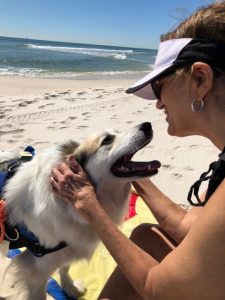If you grew up with ADHD, you’ve probably struggled with patience at some time in your life, if not in every stage of life. I’m far more patient now than in my younger years, but I have no certificate saying, “Patience Attained: No Further Effort Needed.” Personal growth is a path, not a destination. Here are some examples of my continuing struggles with patience.
I’m impatient with impatient drivers who ride my bumper on the freeway. I’m certain that my reckless driving is not as bad as theirs. Unlike them, I keep a safe distance from drivers in front of me, except for those who drive like they’re looking for a parking space…on the freeway.
I’m impatient with people who say insensitive things to me about ADHD, like, “ADHD is just an excuse.” It’s easy for me to refrain from using ADHD as an excuse for anything because I never did. Nor have I used my dyslexia, age, vision problems, hair loss, hearing loss, or tall frame as an excuse for anything except banging my head on chandeliers. I do not need my ADHD. Imagine me saying, “You should excuse me for being late for work because I love my ADHD more than my job.” I don’t think so.
I am impatient with ADHD deniers. I would like nothing more than to have someone reconfigure my brain. To anyone who ever said I should just try harder to remember, or to stay focused, or to think before I speak, please accept this heartfelt proposal: Beginning tomorrow morning, I will try waking up each day with no symptoms of ADHD or dyslexia. My family and friends will be relieved, and I will feel competent.
I used to think I was patient with people who are more rejection-sensitive than I. I try to accept those who reject me for rejecting them when I’m not. I try to accept their defensiveness as I try to accept my own. My rejection sensitivity is subtle and preemptive. I don’t want to disappoint anyone, and feel horrible when I do. Others express rejection sensitivity as anger when they feel rejected. I lack patience with angry people who, like me, have trouble tolerating perceived rejection. Certainty about the motives and feelings of others is like shooting myself in the foot. It gets me nowhere, and it harms relationships.
I want serenity now! But to live one day at a time requires consistency, which is a problem for me. So I skip some days and forgive myself for inconsistent effort. I embrace the serenity prayer as I understand it. I have a five-page list of things I cannot change, but to change what I can assumes that I should. Now that I have learned to differentiate what I can and can’t change, I have the option of changing nothing. The idea of change is less inspiring to me than growth and development. I’ve grown more from accepting failure than achieving success.
I’m impatient with people who lack humility, I lack humility the moment I begin to feel proud of being humble. Then I have to sit in meditation until I recover true humility…without being proud of it. Patience opens me to compassion for people who suffer absence of humility due to childhood neglect, abuse, or other forms of being devalued. Humility helps us forgive ourselves and others for our imperfections.
I’m less patient with experts than flexible thinkers. I want to cultivate more patience with people who know everything, and people who read my mnid so well they know my thoughts before I express them and know my intentions without asking. They are still human and not so different from me. I am capable of thinking I know more than I know.
Most of all, I’m impatient with me.
I welcome your comments and observations.
